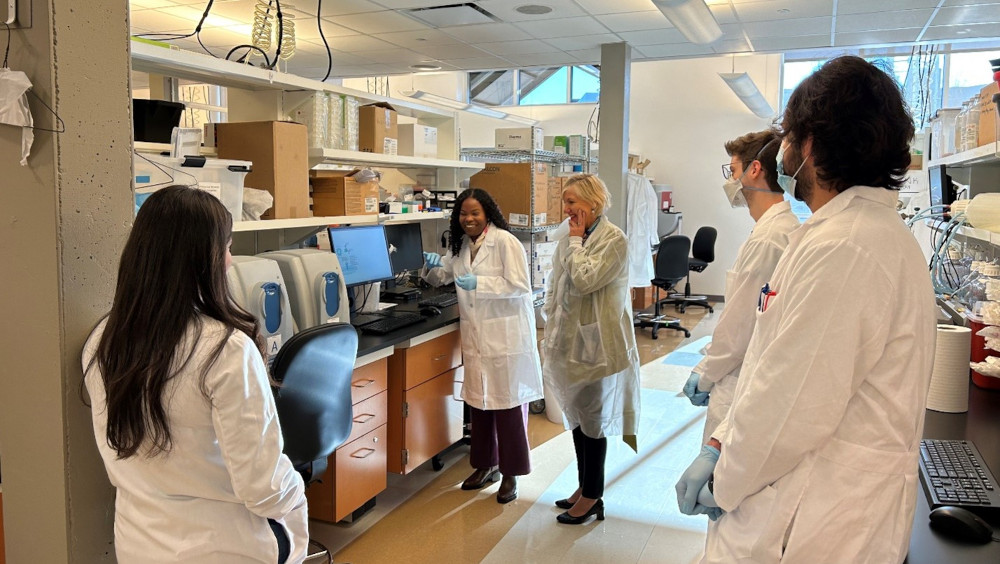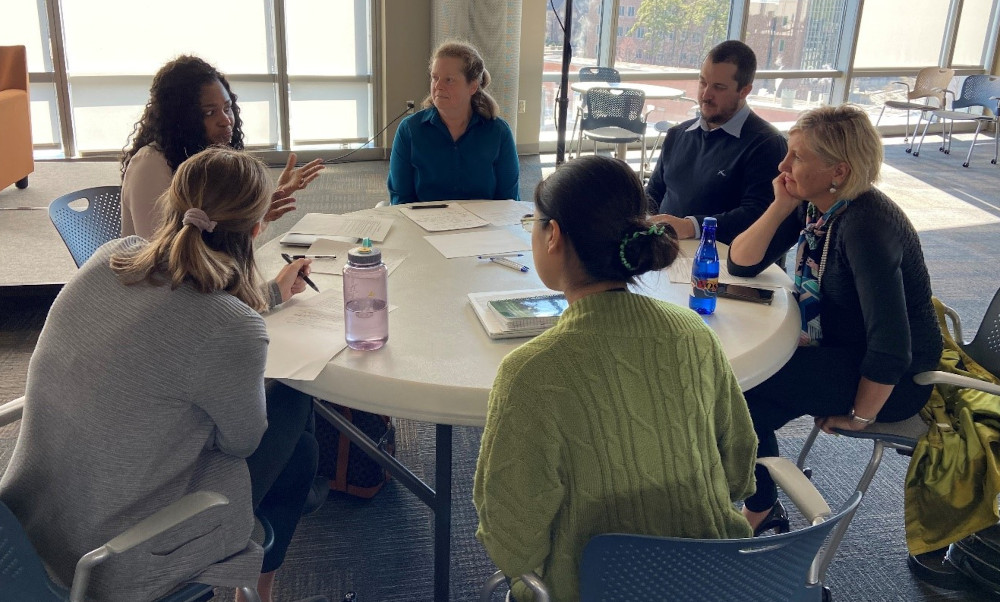
CFAR members, including trainees, faculty, and lab and program staff, gathered together on Tuesday, February 14th for an interactive workshop to reflect on what work we can do as researchers to center community and advocacy in our work and throughout our careers. We were joined by Dr. Glenda Gray, a pediatrician and co-founder of the Perinatal HIV Research Unit in Soweto, South Africa.
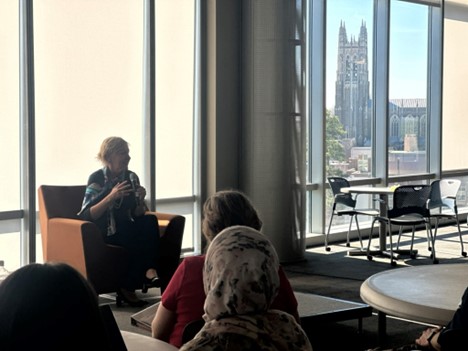
Evidence as a Tool for Advocacy
Dr. Gray started off the workshop by sharing stories from her career, reflecting on the importance of advocacy in shaping the trajectory of the HIV epidemic in South Africa, as well as the role of research and evidence. She recounted her experience as a pediatrician in the early 90s, watching the eruption of HIV in the pediatric wards where she worked. Dr. Gray and other scientists took the government to court in order to combat AIDS denialism that was preventing access to lifesaving treatments and essential tools for the prevention of mother-to-child transmission of HIV. Dr. Gray highlighted the important role of researchers to generate the evidence that can be used by advocates to push for policy change. She pointed to irrefutable science as the motivation to continue her advocacy even in the face of opposition from the government.
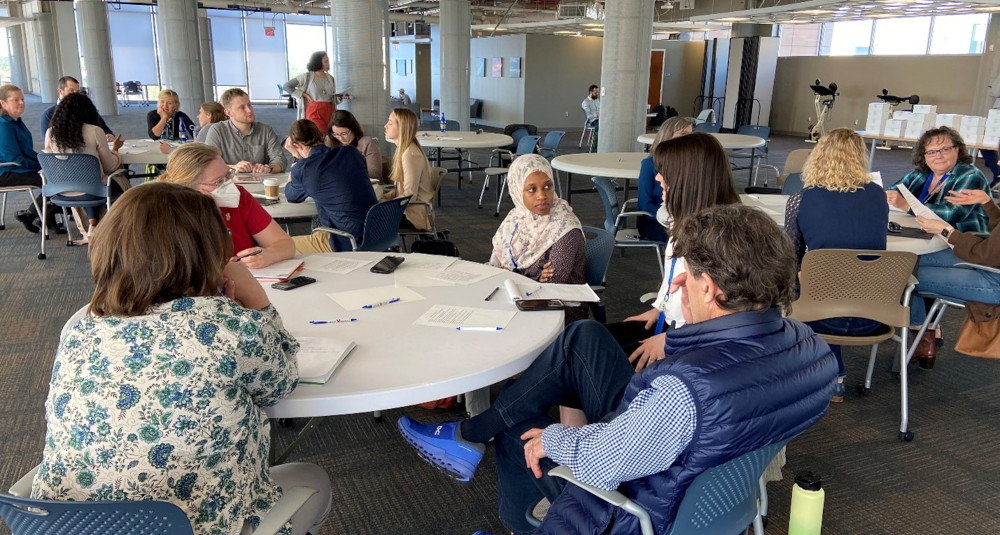
Reflecting on Our Own Work
As part of the workshop, attendees were asked to reflect on their own work and identify where they see gaps in understanding their research in the context of communities or larger systems. They then framed these thoughts in the form of a "How Might I..." question that encourages solutions and ideas.
Example questions included:
- How might I meet people living with HIV and get to know their perspectives?
- How might I learn how my research fits into the bigger picture?
- How might I gain an understanding of what it would look like for someone to navigate HIV care?
- How might I learn the best language to use when talking about HIV or my research?
- How might I improve my understanding of the potential impact of my research on communities?
- How might I amplify the voices of people living with HIV?
- How might I incorporate community engagement into my lab-based research?
- How might I get involved in HIV advocacy outside of my research?
Individually, and then together in small groups, they brainstormed ideas for addressing these questions, which included:
- bringing community members or research participants into the labs to show how samples are used
- shadowing HIV clinicians or accompanying someone living with HIV during a visit or navigating their day
- meeting with community members to talk about research findings and get their ideas on the implications
- creating common vocabularies to discuss topics in easily understandable language
The Duke CFAR has compiled local HIV community engagement and advocacy resources, including resources within Duke and organizations in Durham and North Carolina. We encourage all our CFAR members to explore these resources and reflect on some "How might I" questions relevant to their research!
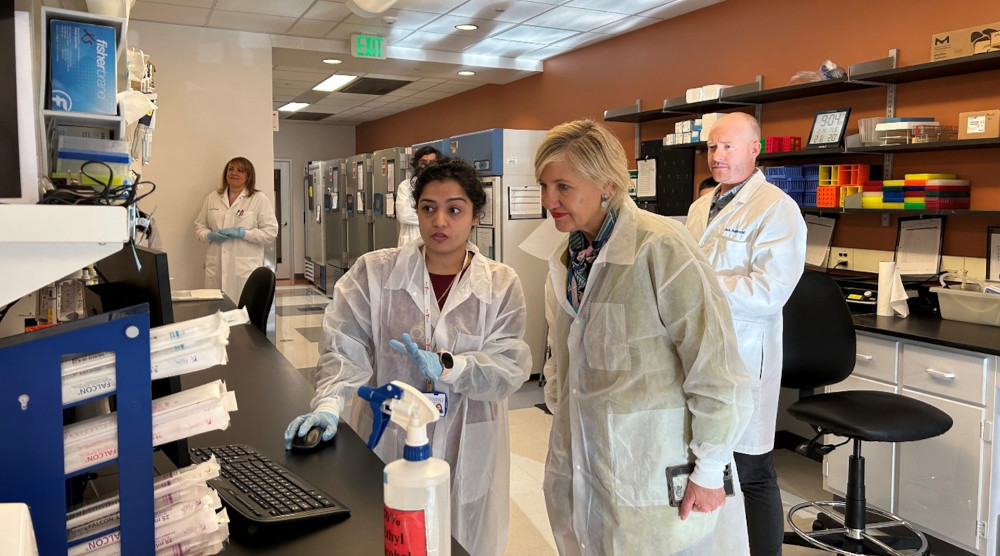
Collaboration, Communication, and Respect
Dr. Gray commented on the potential of these ideas as ways to approach advocacy and centering communities in our day-to-day research and as a means of democratizing science. She discussed the importance of respect and listening to others in communication, as well as understanding privilege and being aware of power differentials related to education, race, language, and class.
The workshop brought together CFAR members from across Duke who are approaching HIV research from different perspectives, whether in the lab or working with communities in rural Uganda. As Dr. Gray stated, "Everybody is important in this ecosystem." As a powerful example of interconnectedness and collaboration, Dr. Gray commented on her experiences earlier in the day touring some of the labs at Duke. As one of the Co-Principal Investigators of the HIV Vaccine Trials Network (HVTN), it was particularly meaningful to see HVTN samples in the Duke labs that originated from infants in the hospitals of Soweto where she worked.
